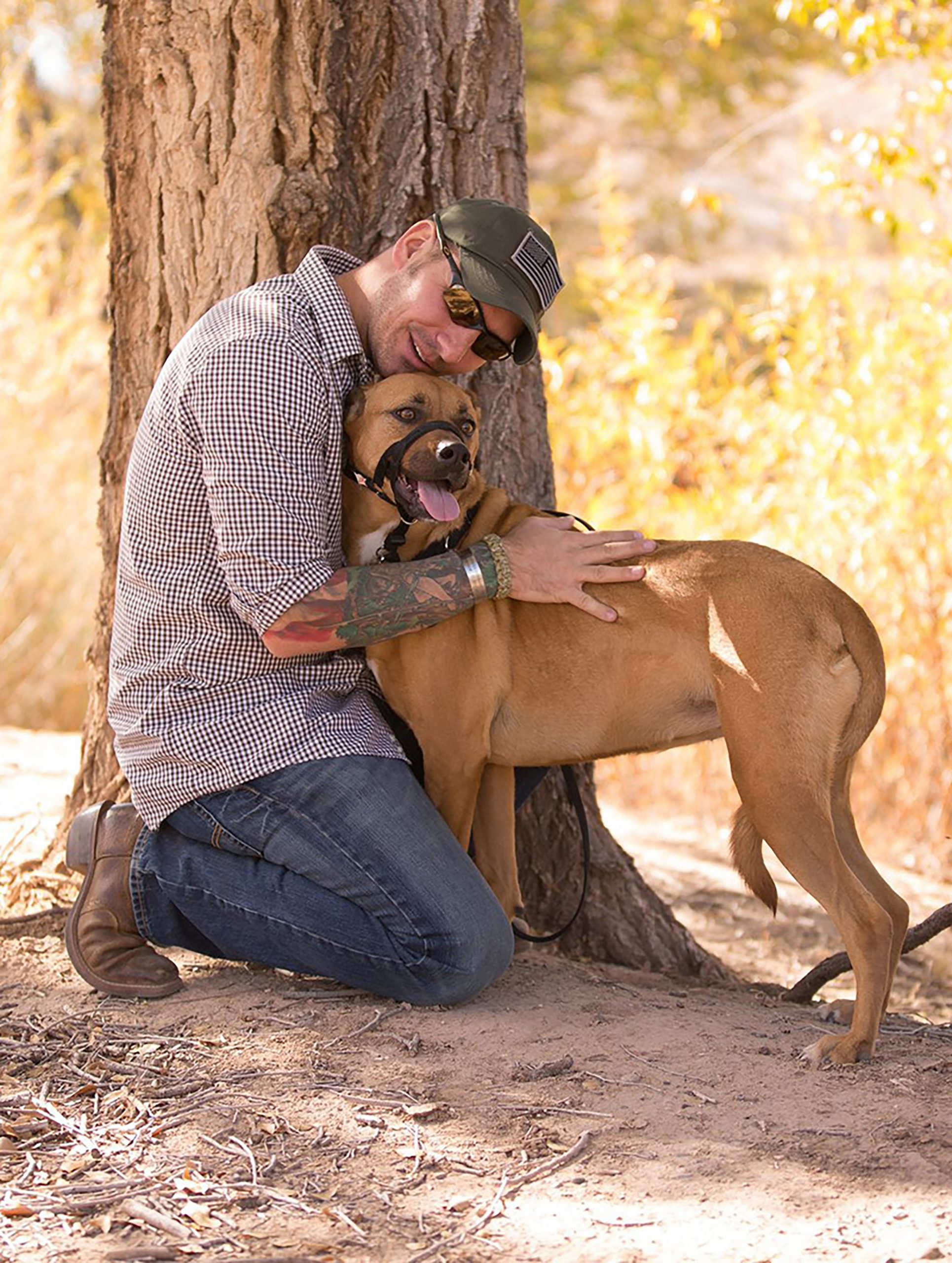ALBUQUERQUE, N.M. — For the first time, Sandia National Laboratories has welcomed a service dog to its New Mexico campus as a workplace accommodation for a veteran living with post-traumatic stress disorder (PTSD).

Three years ago, Rob Mitchell rescued Hunni, a Rhodesian Ridgeback mix, from Animal Humane New Mexico as a pet for his family. After becoming certified as a service dog, Hunni now has a new role in Mitchell’s life: helping ease the PTSD symptoms he has experienced for more than 10 years.
Mitchell served with the U.S. Army’s 1st Calvary Division in Iraq, and he has suffered from debilitating panic attacks since surviving a series of improvised explosive device detonations during his deployment in 2004. Mitchell, who works as an environment, safety and health coordinator at Sandia, has tried several therapies to lessen the frequency and severity of the panic attacks. But the father of two still lives with constant anxiety.
Nonprofit Paws and Stripes matches shelter dogs to veterans
In 2014, Mitchell called Paws and Stripes, an Albuquerque nonprofit that matches shelter dogs with veterans living with PTSD and traumatic brain injuries. The organization works with veterans to train the dogs to become certified service animals in eight to 12 months.
“I went to Paws and Stripes because I decided I needed another tool to help deal with the PTSD. You can’t build a house with just a hammer. You have to try everything at your disposal to get through it,” Mitchell said.
Paws and Stripes provides the dog and training to veterans at no cost, and the organization’s specialists can work with veterans to train a pet to become a service dog if it meets certain criteria. Mitchell’s dog, Hunni, was evaluated against the criteria and determined to be a good candidate.
“Mr. Mitchell and Hunni are proving to be an excellent veteran-service dog team. We look forward to watching them advance and are very pleased with their progress. Paws and Stripes is proud to serve Mr. Mitchell, his family and all our veteran enrollees,” said Mark Valvo, enrollment director for Paws and Stripes.
To prepare for certification, Mitchell and Hunni attended weekly training sessions, including group and individual skill-building activities, and classes in which he learned how a service dog can help allay PTSD symptoms.
Service dogs can help their human companions through PTSD symptoms by retrieving medications at the onset of a panic attack, calling their attention to elevated stress levels, waking them from nightmares or providing mobility assistance.
“Hunni’s job is to help alert me when my stress and anxiety levels start reaching a point where I need to pay attention to them,” Mitchell said. Hunni can read Mitchell’s subtle physical signals, and by fussing with her nose harness or acting excited, Hunni tells Mitchell to reduce his anxiety.
Introducing a service dog to Sandia
After two months of training, Hunni passed a public access assessment, demonstrating that she has such basic skills as sitting, staying and obeying commands that she needs to operate in public. Hunni will complete about six more months of training, but New Mexico state law permits a service dog in training the same access as a fully trained service dog.
Mitchell worked closely with Machelle Karler, Sandia’s equal opportunity and affirmative action manager, to ensure all laws, regulations and security requirements were being followed and to ease the introduction of Hunni to Sandia. Karler also coordinated a seminar to educate Sandia employees about the etiquette of interacting with a service dog.
“I’ve put my heart and soul into this for him and I am so excited to see this come to fruition for him and for his family,” said Karler.
“We wanted to make sure we could pave the way in a process for other veterans or employees who are considering having service dogs. We wanted to help lay the groundwork for other people who want to have service dogs, and I think we’ve done that,” Mitchell added.
